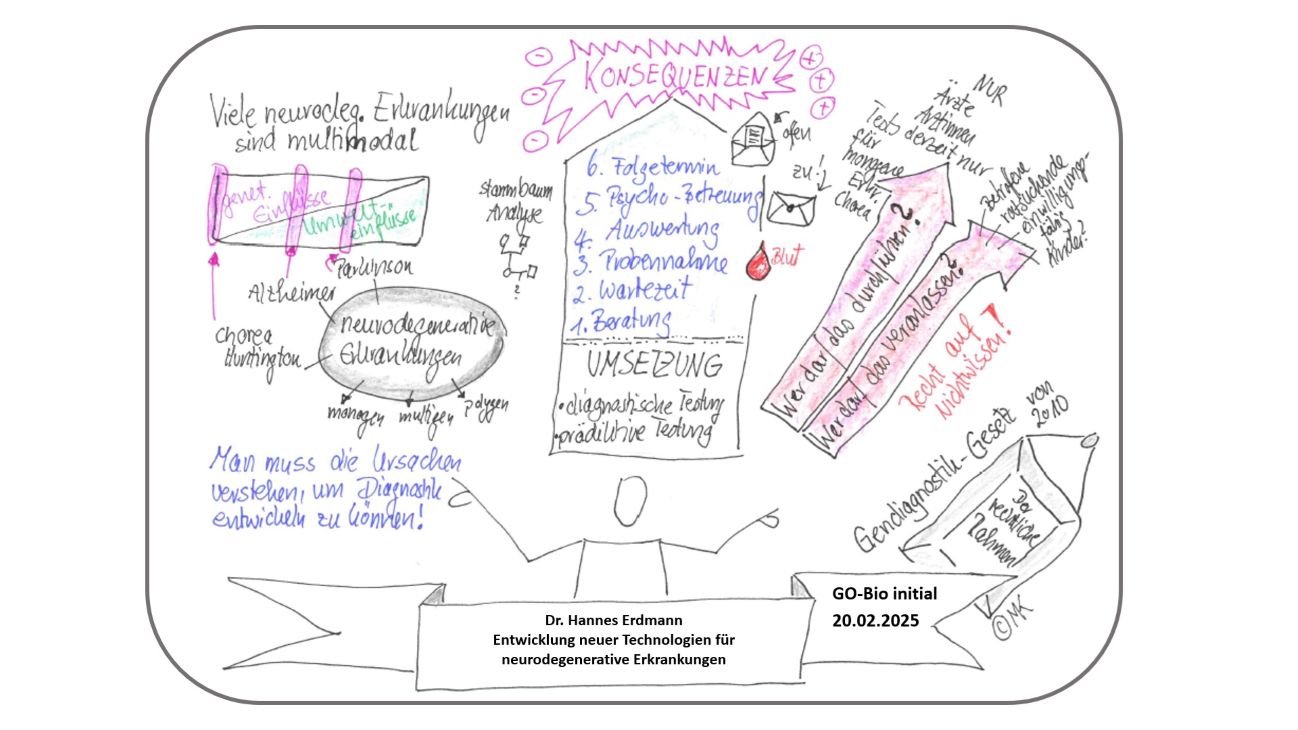As part of the GO-Bio initial seminar series, the TransMIT team organized an online event on 20.02.2025 on the development of new technologies for neurodegenerative diseases with Dr. Hannes Erdmann from the MGZ Medical Genetic Center Munich.
Dr. Erdmann first presented various neurodegenerative diseases such as Alzheimer's, Parkinson's and Huntington's disease and explained that it is very important to understand their development and cause in order to develop suitable diagnostics.
The situation is particularly complicated in the case of multimodal neurodegenerative diseases, which have both genetic and environmental influences. Here, the cause of the disease is not yet fully understood and diagnosis is correspondingly difficult. As an example of very good diagnostics, he cites Huntington's disease, which has a genetic cause, is even a monogenic disease and is one of the rare diseases. In principle, a family tree analysis of various family members is possible here, as is predictive diagnostic testing for the underlying genetic defect. But who is allowed to carry out such a test and who is allowed to initiate it?
On the first question, Dr. Erdmann emphasizes that currently only doctors are allowed to carry out a genetic analysis for Huntington's disease, even though biologists and chemists can also perform the technical procedure. However, the second question is much more complicated and Dr. Erdmann refers to the legal framework and the Genetic Diagnostics Act of 2010, which regulates which persons can arrange testing for themselves or third parties. The situation is relatively clear for a person seeking advice if they are an adult capable of giving consent. In this case, testing is possible at any time. The situation is different for children. Here, parents can only arrange for testing if the disease could also break out in childhood or if early preventive measures could delay the onset. However, if the disease cannot break out in childhood, parents cannot arrange for their child to be tested. Testing can then only be arranged by the affected person themselves from the age of 18.
Dr. Erdmann vividly describes how testing works in practice, from the initial consultation with a person seeking advice through to sampling and evaluation. Psychological support in dealing with the consequences of the test result plays a decisive role. The doctor gives the test result to the person seeking advice in a sealed letter. It is not uncommon for the letter with the test result not to be opened at all and for the person seeking advice to exercise their right not to know. Dr. Erdmann's very interesting presentation ended with a lively discussion on ethical issues and the status of diagnostics for other neurodegenerative diseases.


